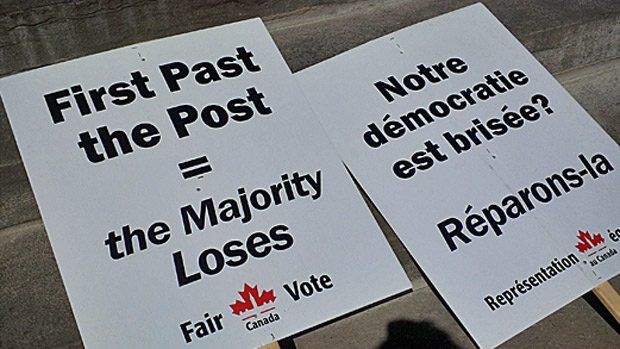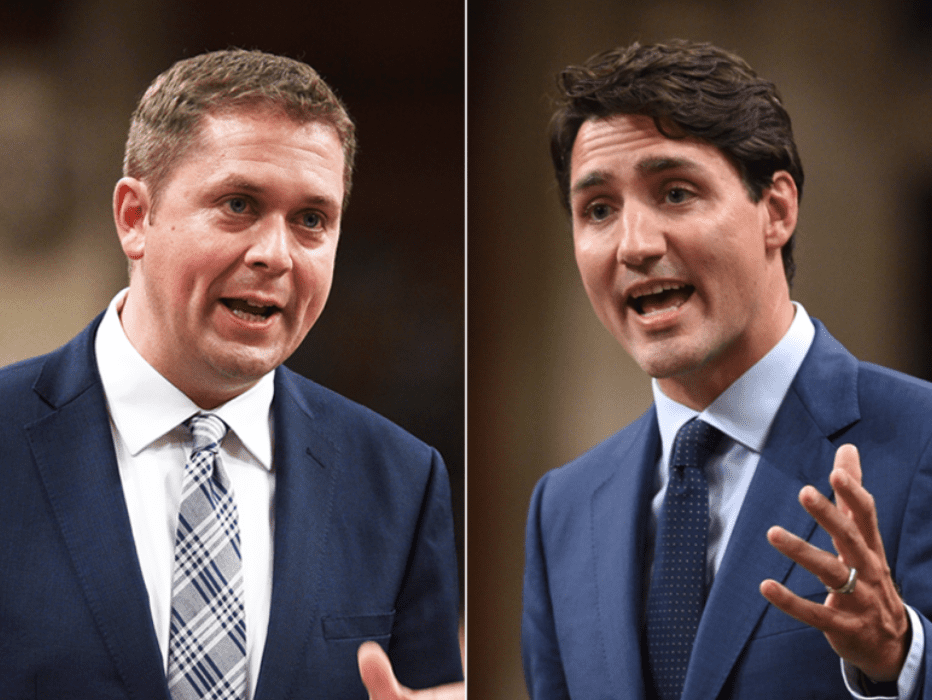As we approach the next election, one particular item keeps being resurrected, both by journalists and partisans alike, as an example of one of Justin Trudeau's most visible broken promises electoral reform. This week, we learned that the petition submitted to Parliament with the most signatures had to do with this very topic, and its sponsor, outgoing NDP MP Nathan Cullen, gathered his righteous Twitter followers to give one last parting exhortation about how terrible it was that Trudeau didn't follow through on this. And with the NDP and Greens keen to relitigate this particular fight on the campaign trail, I think it behoves us to revisit some of what happened in order to remind ourselves that sometimes, promises are made to be broken because they're bad promises to begin with.
First things first a bit of reality check as to the promise that Trudeau made in 2015, when the Liberals were the third-place party, and were busy throwing an overly ambitious platform together in the hopes of regaining official opposition status before replacing the Conservatives in the following parliament, or so the thinking was by many Liberals at the time. It was one thirty-two promises as part of their "fair and open government" plan, and while yes, it promised with rhetorical flourish that they were "committed to ensuring that 2015 will be the last election conducted under the first-past-the-post voting system," the rest of the promise was essentially fulfilled.
As part of a national engagement process, we will ensure that electoral reform measures such as ranked ballots, proportional representation, mandatory voting and online voting are fully and fairly studied and considered. This will be carried out by a special all-party parliamentary committee, which will bring recommendations to Parliament on the way forward, to allow for action before the succeeding federal election. Within 18 months of forming government, we will bring forward legislation to enact electoral reform.
Pretty much all of this was done, though one could quibble that the Liberals on the panel didn't push for Trudeau's preferred system of ranked ballots the way the NDP and Elizabeth May pushed for some form of proportional representation, though much of the analysis of it came by way of a shoddy analysis of a single poll that declared that it would have simply given the Liberals more seats, which was not at all obvious if applied to reality.
The report that the committee brought forward in the end was hot garbage, and its recommendations were nigh useless. "The Committee recommends that the Government should, as it develops a new electoral system, use the Gallagher index in order to minimize the level of distortion between the popular will of the electorate and the resultant seat allocations in Parliament. The government should seek to design a system that achieves a Gallagher score of 5 or less," followed by "The Committee recommends that, although systems of pure party lists can achieve a Gallagher score of 5 or less, they should not be considered by the Government as such systems sever the connection between voters and their MP." Oh, and there needed to be a referendum on the proposal.
This was basically a request for the impossible without seeking constitutional amendments regarding the provincial makeup of seat distribution in the House of Commons. There is no guidance as to what kind of proportional system the government use because there are an infinite variety but not using party lists limit those options drastically. Add to that, in their supplemental report, the NDP and Greens recommended either a Mixed-Member Proportional system or Rural-Urban Proportional system (which the Supreme Court of Canada is unlikely to find constitutional because it means different electoral systems based on where you live) that employed the "Baden-Württemberg system," which is known as "best runners-up" or "first loser" to fill the proportional seats meaning it becomes nearly impossible to vote someone out because they could get right back in as the "first loser," ignoring that elections are as much about holding incumbents to account as they are to choose the composition of the next parliament. In fact, those MPs would be even less accountable because they no longer have a direct connection to voters in a riding, but to the more nebulous party vote.
In the face of this tire fire of a report, it's no surprise that Trudeau and his Cabinet took a pass, and while it may have been a broken promise, we should also consider this an example of evidence-based policy. The evidence was that there were no useful recommendations on what system that Canada should adopt and yes, the Liberals can only blame themselves for not having more robust information on ranked ballots as part of it (not that it would solve any of the problems they might hope it would) not to mention the fact that Trudeau was rightfully wary of a referendum, given recent examples of how they had gone wrong, with Brexit and one that brought a government down in Italy. Of course, Trudeau and his minister at the time, Maryam Monsef, could have done a much better job of communicating that fact at the time, but Monsef got a promotion out of it, so take that for what you will.
With all of this in mind, we can expect the die-hard electoral reformers to caterwaul through this election cycle about Trudeau (partially) breaking this promise, but to them I would ask just what system the government should have implemented. What could possibly have fulfilled the (hot garbage) recommendations from the report that would not have required a constitutional amendment, hundreds of new seats, or an unconstitutional proposal like Rural-Urban Proportional? And if they say "That was for the government to figure out," then it's a tacit admission that they wanted a unicorn were none was available. The better thing to do is challenge the rhetoric around the issue every vote already counts, and the popular vote is a logical fallacy and so it can't actually match up against the percentage of seats won because a general election is 338 separate elections and not one event. The basis of the arguments for electoral reform undermine themselves, and hopefully all parties have learned a lesson about making dumb promises because there's a cool slogan out there they want to associate themselves with.








